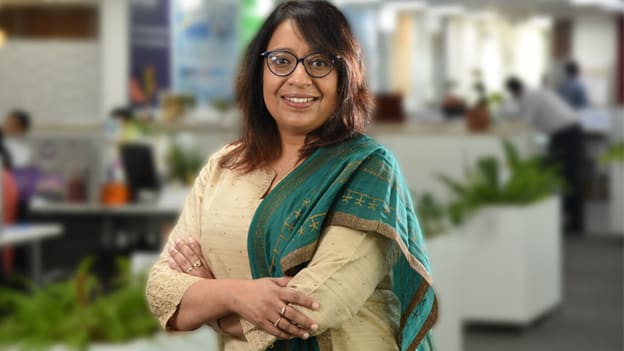Approaching equitable workplaces in pharmaceuticals

You have to be a place that’s more than a paycheck for people.
While compensation and paycheck is an essential componest for motivating employees, equal opportunities, fair treatment, and inclusive work culture forms the critical parameters that keeps your talent engaged and flourish.
In this interview with Smita Saha, VP HR AstraZeneca we highlight how pharmaceutical companies are making strides in diversity and inclusion.
Q: So when you hire is diversity a challenge for the company, and if you have any program that is dedicated to maintaining diversity while hiring?
This is one of the core areas that we work in. We have looked at the way we hire and develop women because of the changing workforce expectations. There are a lot of expectations around hiring them and giving them meaningful careers and having a culture which is enabling. There are a lot of aspects to diversity. If you look at it as an organization that is active both in India and globally, we put in a lot of effort to reflect the community that we serve. In all aspects, we should be as close to society as possible. Globally, we have 50 percent of our workforce as women. In India, in more than half the leadership roles 30 percent of them are women. Our head of manufacturing, R&D, business heads are all women. If you look industry-wise, we are ahead than most companies in it. We’ve been recognized as one of the top 200 best companies in India by working women and Avatar. This is basically the result of the hard work that we have put in since a lot of time.
In addition to what people say that you have better incentives to your hiring partners and employment programs for your diversity candidates, we’ve now gone a step ahead. What we have done is used our early talent programs to attract women. We have a tie-up with Tier 1 pharma companies, and we have a connection with them where we send our women leaders to go and interact with the students. This helps build confidence in students to build a commercial career in the industry. Through this program, last year we hired a workforce out of which 70 percent were women.
Q: You explained about how you are hiring and maintaining your diversity balance, once the person is inside the company how do you build an inclusive culture?
We first look at cultural transformation and from the aspects of talent management. By this we mean that we have a lot of policies and practices that support all women. For example, we have guidance regarding travel, workout, how to build your field working days etc. if you are planning a conference and there are women in them, just make sure that either they are dropped home or they have the ability to stay the night at the hotel. We have employee assistance programs, safe hotels etc. The other aspect is about ensuring that they have a meaningful career with us. We have a program called the Accelerate Her under which we have free access. One is called the Women India Network, which is a networking forum for all women. The second is about how you change the mental makeup to enable people to take a chance and build their careers in a progressing way. The third is by way of sponsorships. This enables us to give them careers in organizations. If you talk of further inclusions, we are a science-led ambition centric organization and so growth through innovation is our strategy. To have innovation, you need to have thoughts and ideas considered and debated in the company. We have done a lot of work around how to build this culture. We have something called the Act Right now, which is a session that the country leadership program runs each month across the country between all the managers. It’s a case study program where we talk about different case studies. Policies do not drive this but these are driven by appropriate good judgement. We also have programs where country leaders connect with their employees to receive feedback, focused group discussions where it is more to learn the employee’s thoughts around engagement, simplification of programs etc.
Q: We talked about diversity and new generational talent, it would be wrong to say given the numbers that you shared in the practices and initiatives that the company has taken. What would be the focus area with respect to DNI in the year 2020?
Our journey with diversity has been quite old. We have dialled our focus on inclusion now for a couple of years. All talk about the legal framework of sexual harassment and with the complaints coming in and all, we’ve gone a step ahead and we actually have implemented an anti-bullying and harassment law in the organization. We have sessions with the managers to help them identify bullying and how to address it. There is a lot of focus around re-inventing our talent practices and about how to ensure that all of our employees are building meaningful careers. We do a lot of work around skilling, the value of our product and regarding what is acceptable and what is not. We have tried to create career journeys where they can join in one place and dabble with different roles locally and globally. This helps them accelerate their career and build a long term career because of this.













